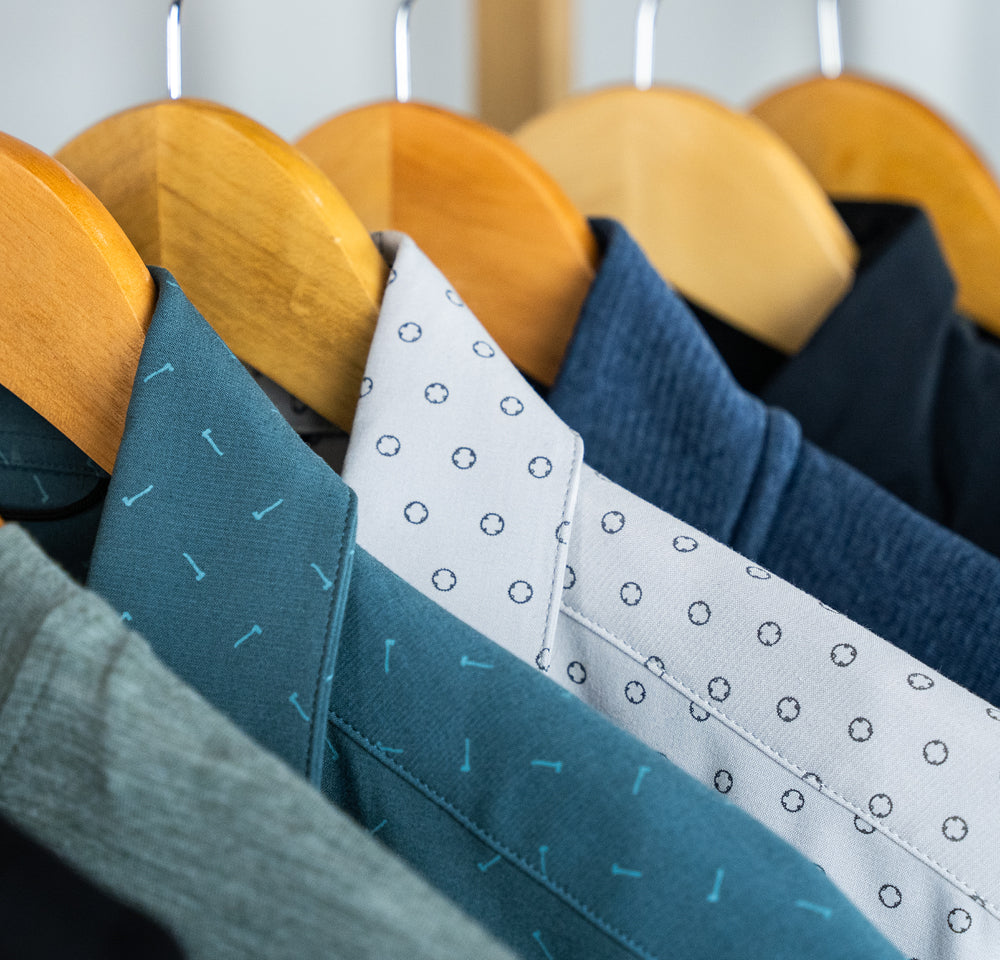If you’ve recently invested in some high-quality Merino wool clothing, you’re probably wondering how to care for it to ensure it lasts as long as possible.
Here at TEREN, we stand by Merino wool as one of the best fabrics on the market for all occasions and lifestyles. We put together this guide to help you care for your Merino wool clothes so they can last as long as possible.
Let’s dive in.
How Often Should You Wash Merino Wool?
One great thing about Merino wool is its naturally anti-microbial properties. This means you don’t have to wash it as much as other fabrics, which helps keep it looking newer for longer.
The time between washes will depend on a few factors, like how long you wear the garment and what kind of activities you do while wearing it.
Keeping your Merino wool garments clean for longer takes some care between washes.
Try to spot-wash any stains, air your Merino clothes out between washes, and fold or roll your items to keep them wrinkle-free for longer.
What Type of Detergent Should You Use?
- Do: Use a pH-neutral detergent or wool-specific detergent.
- Don’t: Use bleach, stain remover, brighteners, or whiteners.
Traditional detergents are harsh and can quickly degrade the fibers in your clothing. This is especially true for fibers like Merino wool, which are naturally much finer than fibers like cotton.
Fun fact: Merino sheep wool fibers are one-third the diameter of a human hair!
Look for a pH-neutral, mild detergent that doesn’t include bleach, stain remover, brighteners, or whiteners. A wool-specific detergent will ensure your fabric fibers stay strong and keep their structure.
How To Wash Merino Wool
- Do: Hand wash or machine wash on gentle. Turn clothing inside out or use a delicates bag.
- Don’t: Wash with hot water or on a heavy-duty cycle.
Merino wool does best when hand-washed, but this isn’t always the most realistic approach for busy people.
For a more hands-off approach, machine wash your wool clothing on a gentle cycle with either cold or lukewarm water only. Heat shrinks wool and degrades the integrity of the fibers.
Merino wool also tends to pill, so it's essential always to wash and dry any merino wool clothing inside out. If you want to ensure your clothing stays nicer for longer, invest in a delicates bag and put all your natural fiber clothing like bamboo and merino wool inside the bag.
How To Dry Merino Wool
- Do: tumble dry on a cool gentle cycle, air dry.
- Don’t: Place in direct sunlight
You can tumble dry Merino wool on a cool and gentle setting in your dryer. However, to ensure its longevity, air drying your clothing will ensure the delicate Merino wool fibers stay stronger for longer.
If you’re air-drying your clothing, just avoid direct sunlight because the harsh rays can dye your clothing.
Frequently Asked Questions
Here are some commonly asked questions about caring for your Merino clothing:
Does Merino wool shrink when washed?
Washing your Merino wool clothing doesn’t inherently lead to shrinkage. However, washing and drying on a hot setting can cause the delicate fibers to shrink. Always wash and dry in gentle and cooler environments.
Can you wash Merino wool in a washing machine?
We recommend you hand wash your Merino wool clothing as much as possible. But cleaning your items on a delicate cycle can also help preserve your clothing and keep it looking new.
Can I use a fabric conditioner on Merino wool?
Fabric conditioners specifically formulated for use on synthetic fibers; they should never be used on any natural fiber at all—including bamboo and Merino wool.
Final Thoughts
The key to ensuring your Merino wool stays looking fresh and new is to be as delicate as possible with it. Remember that because of its naturally anti-microbial properties, Merino wool can withstand multiple wears between washes—so long as it's free of odors and stains.
Modern machine washing routines are harsh on clothing in general, but it's particularly damaging to the delicate natural fibers of Merino wool.
Leverage the natural odor-resistant and stain-resistant properties of your Merino items. It's better for your clothing, your wallet, and the planet.






